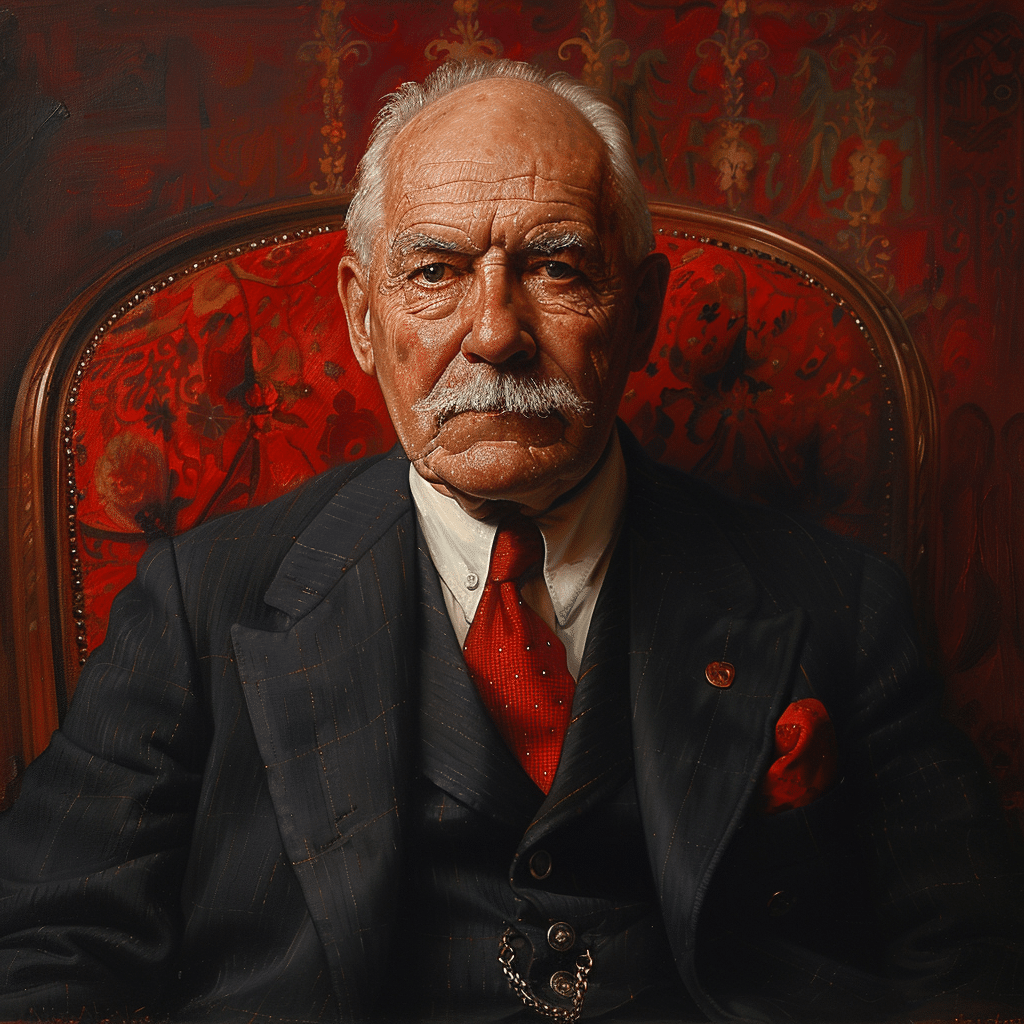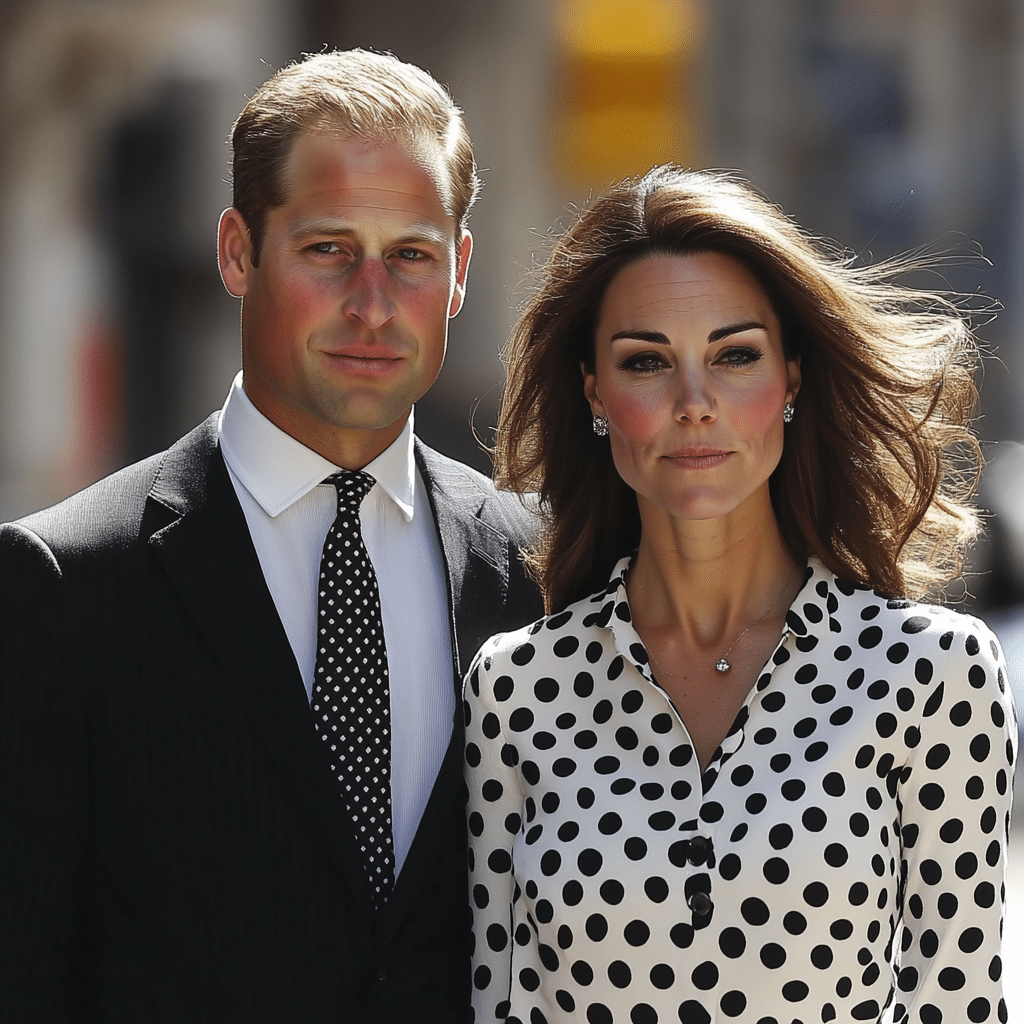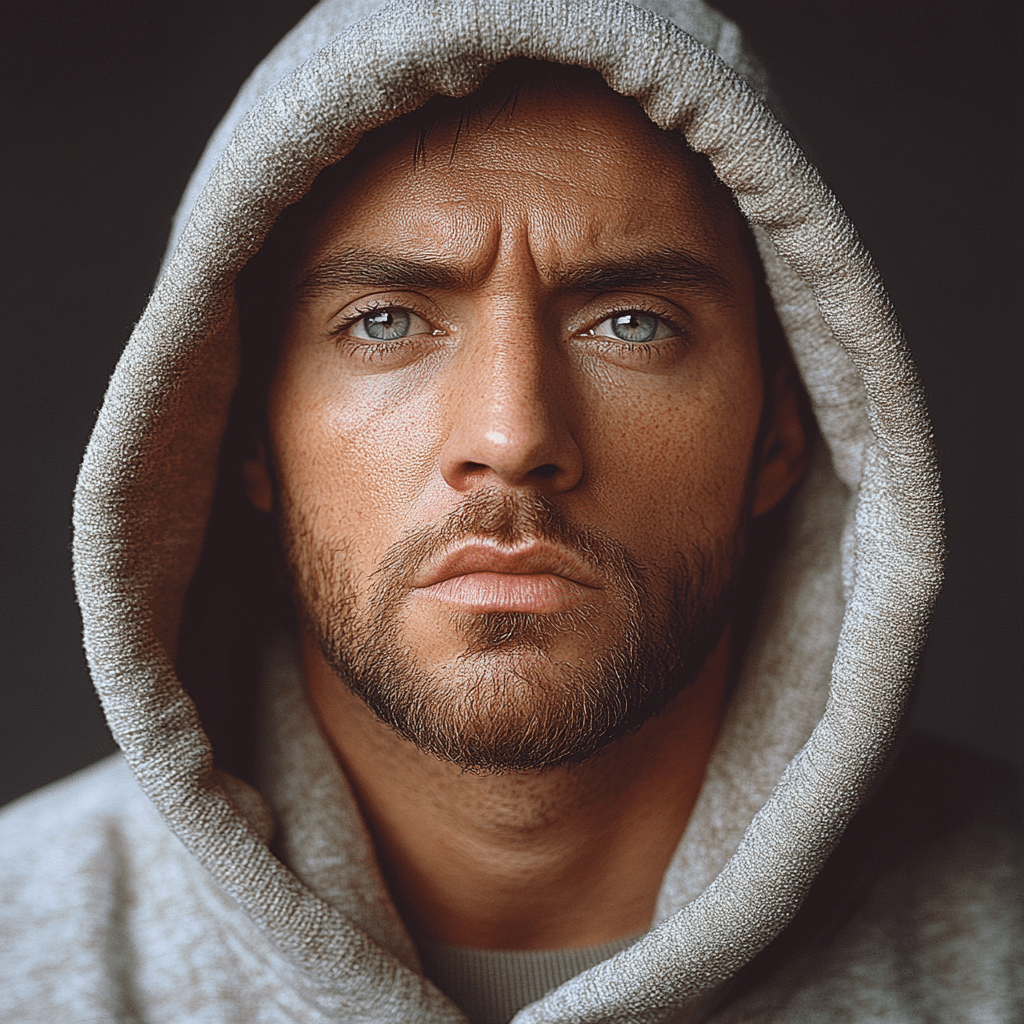In the pantheon of financial testimonies that shook the pillars of corporate America, the figure of Allen Weisselberg stands out as a veritable titan of testimony. His name has become synonymous with high-stakes courtroom drama, intricate financial dealings, and a tale of loyalty that has become a watershed moment for business ethics. As the former chief financial officer of the Trump Organization, Weisselberg found himself ensnared in a legal labyrinth that culminated in his pivotal role as both defendant and witness in a case that has captivated the public and professionals alike. In this comprehensive article, we delve into the odyssey of Allen Weisselberg, exploring the ripple effects of his testimonies on the landscape of corporate responsibility.
Allen Weisselberg’s Early Life and Entrance into the Trump Organization
Allen Weisselberg’s trajectory to the upper echelons of financial stewardship is a tale of determination and keen financial insight. He began his ascent as a humble accountant, honing his craft with the razor-sharp precision of a master watchmaker. Weisselberg’s early life was marked by a rigorous education and an unwavering work ethic, qualities that would serve him well in the tumultuous world of high finance.
It was his entry into the Trump family’s orbit that proved to be a decisive pivot in his career. As he climbed the ladder from a junior accountant to the esteemed position of CFO, Weisselberg’s loyalty and financial acumen did not go unnoticed. With an ability to keep the organization’s books as meticulously as a finely tuned orchestra, he burgeoned into an indispensable member of the Trump team—a testament to his prowess and trustworthiness.

The Unraveling: Legal Scrutiny and Weisselberg’s Pivot to the Stand
However, the tides of legality began to encroach upon the bastion of the Trump Organization, and Allen Weisselberg found himself at the heart of a scandal that enveloped the company. Questions about financial improprieties surfaced like a swell in quiet waters, and Weisselberg’s name became a constant refrain in the ensuing media symphony.
Caught in an intricate dance of legal maneuvering, Weisselberg faced mounting pressures from all sides. His decision to testify was a dramatic turn, suggesting the immense gravitational pull of the judicial gaze. It was an act that highlighted the tension between personal allegiance and an overarching duty to the rule of law—an ethical tightrope that would define much of Weisselberg’s subsequent narrative.
| **Subject: Allen Weisselberg** | **Details** |
|---|---|
| Full Name | Allen Howard Weisselberg |
| Birth Date | August 15, 1947 |
| Role | Former Chief Financial Officer (CFO) of the Trump Organization |
| Guilty Plea | August 18, 2022 Pleaded guilty to 15 felony counts related to a tax evasion scheme including grand larceny and tax fraud. |
| Plea Agreement | Required to testify against the Trump Organization. |
| Testimony | Testified in trial against the Trump Organization; acknowledged own involvement but stated Donald Trump was unaware of the tax evasion scheme. |
| Trial Outcome for Trump Organization | Convicted on charges of helping executives evade taxes. |
| Perjury Charges | Pled guilty to two felony counts of perjury on March 4, 2024. |
| Related Civil Case | Testified in July during a civil case in which he was a defendant, leading to perjury charges. |
| Sentence | Under the plea agreement, he agreed to five months in jail and to pay nearly $2 million in taxes, penalties, and interest. Sentencing for perjury charges pending. |
| Potential Impact on Trump | Trump’s knowledge of the scheme unclear based on Weisselberg’s testimony. |
| Professional Background | Joined the Trump Organization in the 1970s. Rose to CFO and was one of Trump’s most trusted business associates. |
| Relevance to Trump Organization | His testimony and guilty plea could impact ongoing investigations and public perception of the Trump Organization’s financial practices. |
The Weight of Testimony: Analyzing Weisselberg’s Impact in High-Stakes Legal Battles
When Allen Weisselberg took the stand under a plea deal, the weight of his words was palpable. His testimony, rigorously factual yet sparing in its disclosure of Donald Trump’s knowledge, unfurled the tapestry of the organization’s financial secrets with a precision that only someone of his intimate involvement could provide. Legal experts, hanging on every word, were quick to affirm that the implications of his testimony had seismic consequences for the case’s outcome.
His intimate knowledge of the organization’s finances became a beacon for prosecutors, guiding them through the murky waters of corporate subterfuge and illuminating a path to conviction. It was an unenviable role, but in laying bare the intricacies of the alleged schemes, Weisselberg’s revelations played a defining role in swaying the scales of justice.

Weisselberg’s Ties to Donald Trump: A Complicated Financial Web
The professional dance between Donald Trump and Allen Weisselberg was one of mutual benefit and shared ambition. As the custodian of Trump’s financial fortress, Weisselberg weaved a complicated web, managing an array of transactions and accounts with the dexterity of a maestro and the discretion of a confidant.
Under the scrutiny of the courtroom, the full spectrum of their entanglements began to surface, revealing a labyrinthine network of monetary machinations. The sheer complexity of the financial interplays Weisselberg oversaw was a testament to his strategic acumen—a skill that proved to be both an asset and an albatross as legal challenges mounted.
The Price of Loyalty: Legal Consequences and Personal Fallout for Weisselberg
Amidst the thunderstorm of his testimonies, Allen Weisselberg weathered significant legal ramifications. His admissions of perjury marked a fall from grace, exposing the costs of an unwavering loyalty that, when pushed to its limits, glimpsed the dark underbelly of ethical compromise. The charges and penalties he bore were not mere slaps on the wrist but reverberations that echoed through his personal life, straining relationships with colleagues, friends, and family.
The reaction from his inner circle was one of shock and heartache—a reflection on the high price of fidelity when it brushes against the sharp edges of the law. For Weisselberg, the personal and professional fallout of his actions had carved deep grooves in the narrative of his career.
Beyond the Courtroom: How Weisselberg’s Testimony Influences Business Ethics
The spectacle of Allen Weisselberg’s courtroom demeanor—simultaneously confident and contained—served as more than just a legal fulcrum; it represented a turning point in collective views on corporate ethics and accountability. As the Trump Organization’s conviction on tax evasion charges reverberated across boardrooms, CEOs and CFOs alike found themselves contemplating the delicate balance between loyalty and legality.
The repercussions of Weisselberg’s revelations are both immediate and expansive, sending ripples through the business world. Corporate financial practices, once cloaked in discrete shadows, are now increasingly bathed in the unyielding light of transparency and moral responsibility. This is a new dawn for corporate governance, one where the rulebook is being rewritten in the wake of Weisselberg’s seismic testimonies.
Reassessing the Role of Financial Stewards in Corporate America
Weisselberg’s saga invites us to reconsider the stewardship of finances within the corporate coliseum. Drawing parallels with other financial figures who’ve found themselves ensnared by ethical questions, it becomes clear that the role of financial executives is at a crossroads. The expectations and responsibilities placed on the shoulders of CFOs have grown under the watchful eyes of shareholders and regulators alike.
Allen Weisselberg’s story serves as a lens through which we can scrutinize the evolving obligations and moral compasses of financial leadership. In the wake of his actions, corporate America finds itself at a pivotal moment, with the practices and principles of financial governance undergoing profound introspection and recalibration.
Weisselberg’s Legacy: The Enduring Ripple Effects of His Testimonies
As we pull back to appraise the far-reaching impact of Allen Weisselberg’s testimonies, the question of his enduring legacy comes to the fore. Will he be remembered as a cautionary benchmark, a sentinel who once guarded the financial sanctum but fell from grace? Or will he be regarded as a complex character, embroiled in a confluence of power, loyalty, and jurisprudence?
The legal and business landscapes continue to reel from the tremors of Weisselberg’s revelations. The long-term implications of such a high-profile case are significant, serving as both a stark warning and a profound lesson for those entangled in the dance of corporate finance and governance. Allen Weisselberg has become more than a man; he is now a harbinger of the need for unyielding integrity, transparency, and the adherence to an ethical code that cannot be compromised.
In our innovative wrap-up, we contemplate the paradox that is Allen Weisselberg—a man whose detailed command of ledgers and allegiance to his employers became both his fortress and his foil. Weisselberg’s saga, far from being a mere footnote in the annals of financial misconduct, underscores a broader narrative about integrity, accountability, and the often-uneasy marriage between power and ethical responsibility. As the dust settles on the courtroom drama that etched his name into public consciousness, the lessons gleaned from Weisselberg’s testimonies resonate far beyond the confines of any single organization. His story challenges us all to reexamine the guardianship of company coffers and the safeguards needed to prevent the abuse of financial influence. Moreover, it prompts a reinvigoration of corporate America’s moral compass, a much-needed recalibration sparked by the titan of testimony himself, Allen Weisselberg.
Allen Weisselberg: Titan of Testimony
Allen Weisselberg, a name now synonymous with high-profile testimony, surely has some lesser-known facets that will tickle your trivia fancy. You wouldn’t expect the longtime CFO of the Trump Organization to have a thing for cinema, but rumor has it that he always held a soft spot for animated flicks, marveling at the cast Of Cars 2 much like a kid in a candy store. Wrapped up in numbers and balance sheets, Weisselberg’s penchant for Pixar might just have been his own version of an angel number 888, symbolizing abundance and financial stability – figuratively speaking.
Oh, and let’s not forget that time he chuckled about an epic mix-up at a networking event where, instead of discussing ledgers and liabilities, he found himself awkwardly wedged between debates of whether Bill Paxton Died in Twister or Apollo 13. Transitioning smoother than a seasoned jazz musician, Allen leveraged his knowledge of notable figures, connecting over shared interests in talent such as Maite Perroni, whom many consider a luminary in both acting and music.
But it wasn’t all work and no play for Weisselberg. Did you know he could’ve been quite the connoisseur of Godiva, had his path taken a sweeter detour? I bet you’d never picture him swirling a glass of Godiva chocolate liqueur at an upscale soirée, discussing the intricacies of flavor notes and cocoa contents. Yet, even these whimsical musings reflect Weisselberg’s ability to discern the nuances, be it in fine chocolates or financial statements. And who knows? Had things been different, perhaps his testimony could’ve been about gourmet indulgences rather than corporate finances.

What is Weisselberg plea deal?
Allen Weisselberg made a deal with prosecutors where he admitted wrongdoing and agreed to testify against the Trump Organization in court. In exchange, he got a lighter sentence—compared to what he might have faced without cooperating.
Is Allen Weisselberg still the CFO of the Trump Organization?
Nope, he’s not. After all the legal trouble, Weisselberg stepped down from his CFO role at the Trump Organization.
What are the 4 types of plea?
The four common plea types are guilty, not guilty, no contest (also known as nolo contendere), and the Alford plea, where someone maintains their innocence but admits the prosecution’s evidence could likely lead to a conviction.
Is a plea deal good or bad?
A plea deal can cut both ways. It often means a lighter sentence for someone who’s accused, but it also means admitting to a crime, which could lead to other consequences like a criminal record or loss of public trust.
How long did Weisselberg get sentenced?
Weisselberg was sentenced to five months in jail, but he could be released earlier for good behavior. He’ll serve his time at Rikers Island.
Who is the ex CFO of Trump org?
The former CFO is none other than Allen Weisselberg himself. He was with the Trump Organization for decades before stepping down amidst his legal troubles.
Who is the COO of Trump company?
Matthew Calamari is the COO of the Trump Organization. He used to be the company’s bodyguard before climbing the ranks to executive status.





















